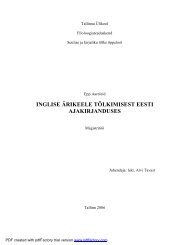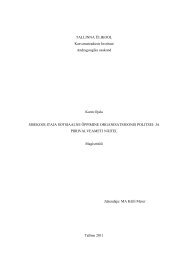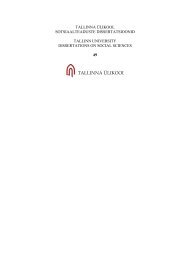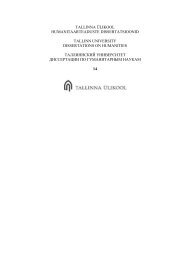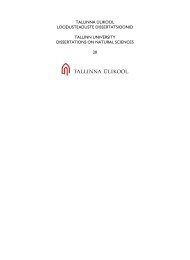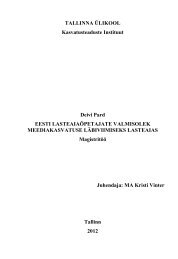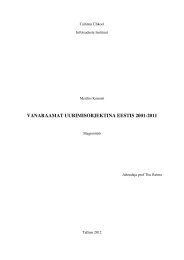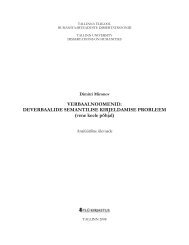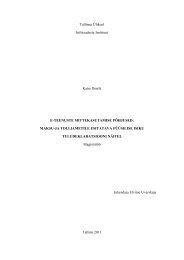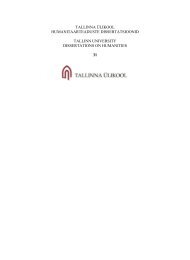Download (1157Kb) - E-Ait
Download (1157Kb) - E-Ait
Download (1157Kb) - E-Ait
Create successful ePaper yourself
Turn your PDF publications into a flip-book with our unique Google optimized e-Paper software.
single university was for all respondents to suggest that there are no any incentives for<br />
knowledge sharing. Other responses were distributed, for instance, two respondents from<br />
same university mentioned a similar incentive, one mentioned another incentive and another<br />
one suggested there is no incentive at all. The next section makes a few suggestions on how<br />
the reward system can be improved. The terms “reward” and “compensation” are used<br />
interchangeably within the following discussion to mean any benefit a person receives,<br />
attributed to his or her knowledge contribution.<br />
4.2.2. Measures to improve the rewarding system.<br />
As suggested in section 4.1.2 knowledge sharing needs to be recognised by staff as part of<br />
their job and incorporated in their job description. Nermien Al-Ali suggests that if employees<br />
do not perceive knowledge sharing to be part of their job for which they are compensated,<br />
they will not do it. Time for sharing and collaboration should be well accepted as part of the<br />
job, and the job description should specify how it should be exercised. It should be very clear<br />
as to what time is devoted to sharing activities and how the contribution will be noted and<br />
rewarded, See Al-Ali (2003). Tanzania public university libraries need to specify the time and<br />
tools meant to facilitate knowledge sharing and make them known to staff.<br />
Such rewards like financial compensation and recognition do not last long because they are<br />
not documented anywhere; as a matter of fact they are easily forgotten. Tanzania public<br />
university libraries need to find a way to present the acknowledgment of knowledge shared in<br />
such a way that, the next generation can read about these kind of success and feel the<br />
inspiration to follow past examples or even to do something bigger. One way to achieve this<br />
is through reflecting past achievements in employees‟ performance reviews and appraisal<br />
systems. Once there is evidence for future reference reflecting the names of the knowledge<br />
sharers, what they shared and how it helped the success of the organisation, other people are<br />
likely to be motivated to share. Best practices success stories can indeed be a motivation once<br />
they are celebrated.<br />
The design of the reward systems should start by identifying the previous existing ones.<br />
Assessment should be made to identify their achievement and how they can best fit the<br />
current situation. In Tanzania public university libraries for instance, it may start by assessing<br />
the impact that promotion and recognition have on knowledge sharing as both seem to score<br />
47




